Risky Business: Teenage Sports Betting On the Rise
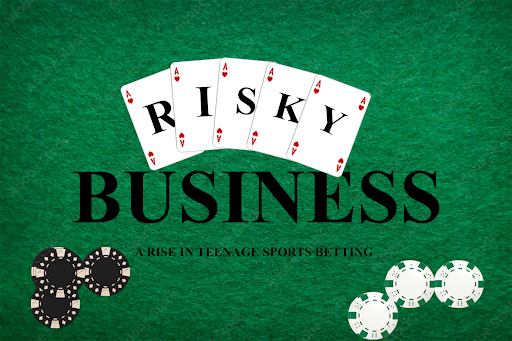
Senior Study Hall Advisor Mrs. Laurie Hektor noticed a prevalence of gambling activities amongst students in the senior commons last year. After witnessing multiple students bringing poker chips into senior study hall, she realized that the gambling situation was “out of control.” As a result, she intervened to enforce the school’s strict no-gambling policy.
“Honestly, I’m shocked with the amount of money people are betting at this age. It’s crazy. They are very open about it,” said Hektor.
Across America, betting and gambling rates are skyrocketing, as online organizations such as Fanduel, DraftKings, and Bet Rivers have made betting more accessible than ever. In fact, 68 million Americans, approximately one in four, planned to bet on this year’s Super Bowl – a 35% increase from last year.
This trend mirrors the results of a survey The Forest Scout sent to the student body via email, wherein 17% of survey respondents (out of 99 total) responded that they place sports bets every day and 1 in 3 respondents said they did bet on this year’s Super Bowl.
Additionally, 41.4% of survey respondents stated they have bet at varying frequencies during their time in high school.
“I would say at least half of the boys in this school bet on sports. It’s very rampant,” said senior Oliver Cooper.
Survey respondents reported betting anywhere from $5 to over $100 per bet.
Sports betting has become a phenomenon nationwide as a result of a 2018 Supreme Court ruling that struck down a federal ban on sports betting. Now, one can lose (or win) thousands of dollars by the simple click of a button on their electronic device.
However, gambling under the age of 21 remains illegal in Illinois. Despite this, the number of high schoolers who gamble continues to grow as they discover ways to bypass the gambling age restrictions.
Although many online sites such as DraftKings require proof of age, several students shared that they use their parents’ social security and credit cards to circumvent the restrictions either with their parent’s permission or without.
60% of The Forest Scout’s survey respondents said their parents are fine with them betting and gambling.
Students also reported underage betting via offshore gambling sites, such as Ubet, that don’t enforce age restrictions.
Additionally, students have shared that they use a bookie, an individual who takes other people’s bets and then pays them out. Some students have even admitted to acting as a bookie for other students.
“I have a bookie who pays me out,” one anonymous student said. Another anonymous student said, “We had bookies that were college kids during our freshman year.”
Based on interviews with student bettors, age restrictions do not appear to be an effective deterrent for underage gambling habits.
“DraftKings banned me because I’m underage. I lost $500 from that, but nothing is going to stop me,” said senior Will Anderson*.

Gambling is in part a byproduct of the strong sports culture in America. Ads for gambling sites are ubiquitous and encourage individuals to register for an account and immediately start gambling.
These organizations entice potential bettors with offers and rewards for initially signing up. For example, DraftKings currently offers $200 in bonus bets for creating an account, depositing $5 into it, and then wagering $5 on any event that they cover.
Many students believe that the marketing pressure, combined with peer pressure is what initially entices students to get involved in gambling.
Students reported that they feel their gambling habits are acceptable because in their perception “everyone does it.”
“I understand why some people want to participate in gambling. Because not only could you win money, but I also believe there is a culture surrounding specifically sports gambling. Almost a community of sorts. But with how most of the people gamble at our school, it’s a problem,” said one survey respondent.
Many students are not only betting for the potential monetary reward, they also bet because they view it as a source of entertainment and a way to connect with peers.
“I bet on random hockey games I don’t care about just so that I will watch it and have something to be interested in,” said senior John Smith*.
Have you placed a sports bet or gambled in your high school career?
Sorry, there was an error loading this poll.
Other bettors shared the same sentiment.
“Betting makes any game more engaging. I can watch women’s tennis or women’s volleyball. I don’t care who they are,” said Anderson*.
In addition to entertainment value, students reported that one of their main drives to gamble is the dopamine high and adrenaline rush they experience.
“I love gambling because it gives you that dopamine rush,” said Anderson*.
Placing a bet raises dopamine levels, causing the bettor to feel a sense of achievement and pleasure. Like other dopamine-inducing activities – such as drinking caffeine, consuming recreational drugs, and drinking alcohol – betting can quickly become addictive due to excess dopamine signals causing structural changes in the brain.

The psychological and neurological impact of gambling can have long-lasting, negative effects, as the intense dopamine rush can serve as a pathway to future addiction.
“Teenagers’ brains are still developing and so they are sensitive to the damaging effects of addiction,” said AP Psychology teacher Mrs. Julie Harris. “Teenage gambling greatly increases the risk of gambling later in life when the consequences are even greater.”
Because teenagers have underdeveloped frontal lobes they cannot appropriately weigh decisions which causes them to take irrational, impulsive risks.
“There’s also a link between gambling and other mental health issues like depression and anxiety. These can also become lifelong problems,” said Harris.
4 to 6 million Americans struggle with a gambling addiction. Gambling is one of the least-overcome addictions and problem gamblers have the highest suicide rate of any addiction disorder, more so than any drug addiction disorder, with 1 in 5 problem gamblers attempting suicide.
Several students self-reported that they feel addicted to gambling.
“I legitimately feel addicted to betting. When I watch live sports events I have a physical need to place a bet,” said Smith*.
Many students have said that despite their losses they can’t stop placing bets.
“I’ve definitely lost more money than I’ve won in total but that doesn’t make me want to stop,” said Smith*.
Other bettors shared the same sentiment, one anonymous senior said, “100% I don’t plan on stopping. I’m really looking forward to when I’m 21 and can get access to all of these apps. I can see myself in college watching sports and betting a lot of money.”
Despite these admissions, the majority of respondents at LFHS seem to think they have their gambling impulses under control, as 73% of surveyed bettors expressed that they don’t see a problem with their gambling habits, whereas 12% reported that they are concerned.
“I don’t feel like it’s an addiction, I feel like it’s dedication. I can stop whenever, but why would I stop?” said Anderson*.
The high-stakes nature of gambling increases the likelihood of additional negative events, including but not limited to physical violence.
One anonymous student said, “I’ve seen someone beat up over it [gambling].”
In addition to the psychological dangers of gambling, there are also extensive legal ramifications.
If one is caught gambling underage in the state of Illinois, they can face fines of up to $500 and/or a suspension of their driver’s license. Additionally, there are criminal statutes that could come into play depending on the nature of the individual’s gambling activities.
21.3% of The Forest Scout’s survey respondents reported they have gotten in trouble in the past because of their gambling behavior, whether that be with their parents, school authorities, or others.
“I was a bookie for other kids until I got in trouble so I had to stop,” one anonymous student said.
Other students such as senior Ben Davis* who gambles several times per week, reported hiding their gambling habits to avoid consequences from their parents.
“My parents don’t know because they wouldn’t like it,” said Davis*.
LFHS strictly prohibits all forms of gambling, which is outlined in the school’s handbook.
“Gambling is not acceptable at our school. There would be a consequence that comes with it and if the behavior continues the consequences would increase,” said Assistant Principal Frank Lesniak.
Teenage gambling is clearly on the rise and is projected to grow even more in the coming years. The number of online sports bettors is expected to reach 37 million by 2025, a 47% increase from the current 25 million.
“If we want to put an end to [gambling] we need to partner with parents and make sure that they understand the seriousness of this problem,” said Lesniak.
*The students’ actual names were replaced to keep anonymity. The Forest Scout does not approve of or encourage underage gambling.
If you or someone you know has a gambling problem contact the SAMHSA National Helpline at 1-800-662-4357.
Your donation will support the student journalists of Lake Forest High School. Your contribution will allow us to purchase equipment and cover our annual website hosting costs.



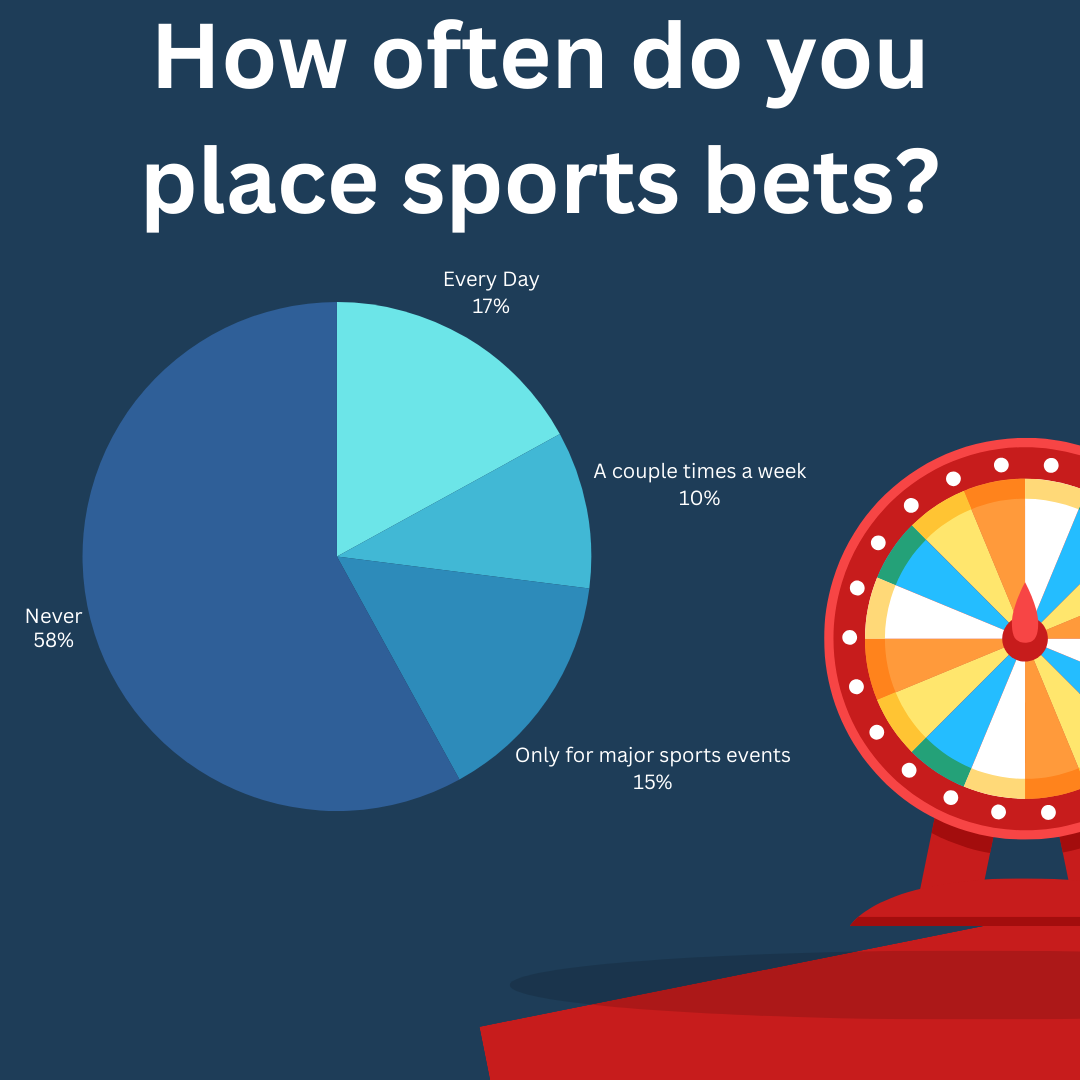
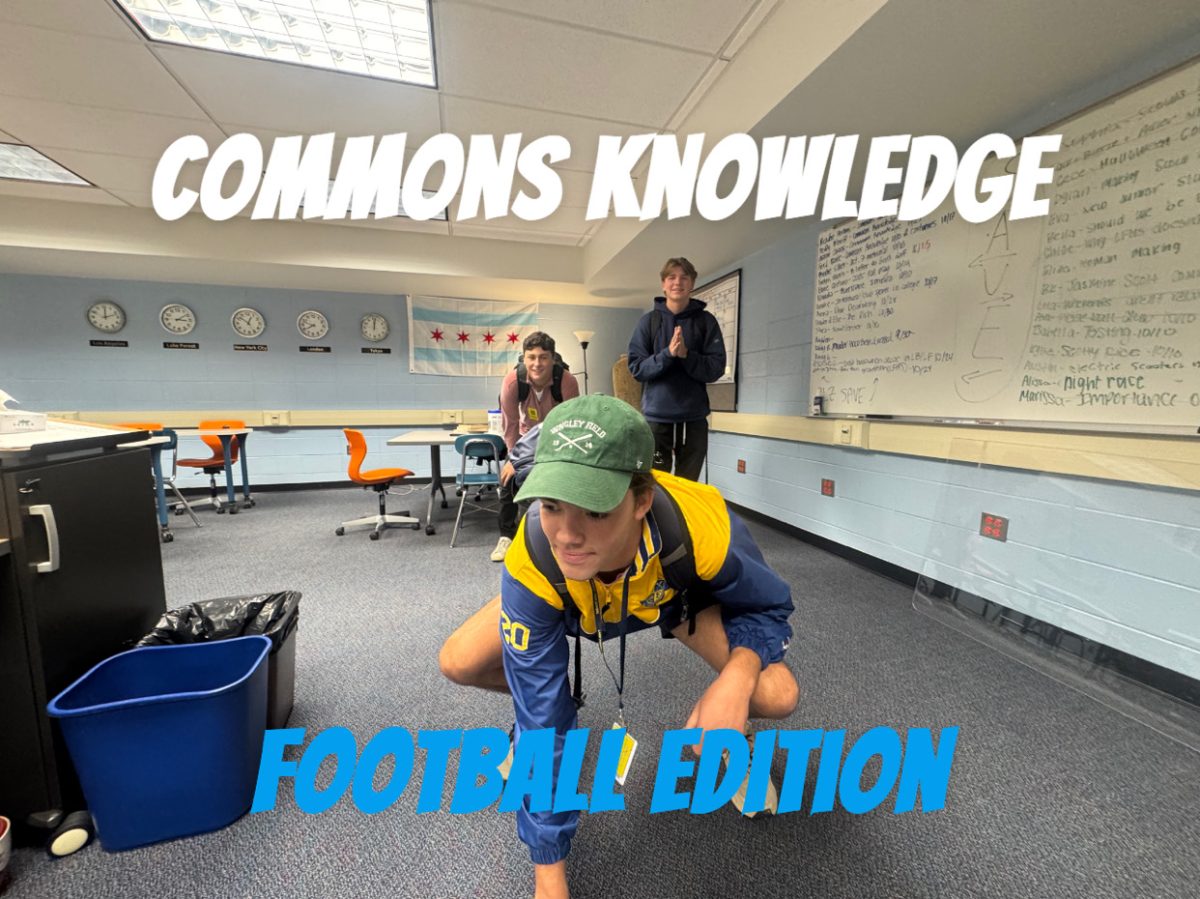





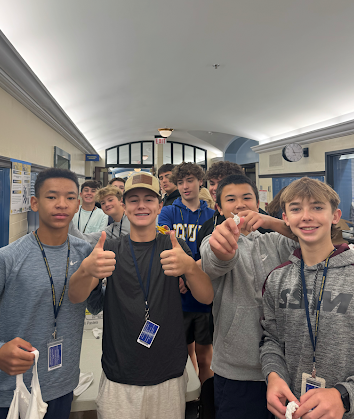



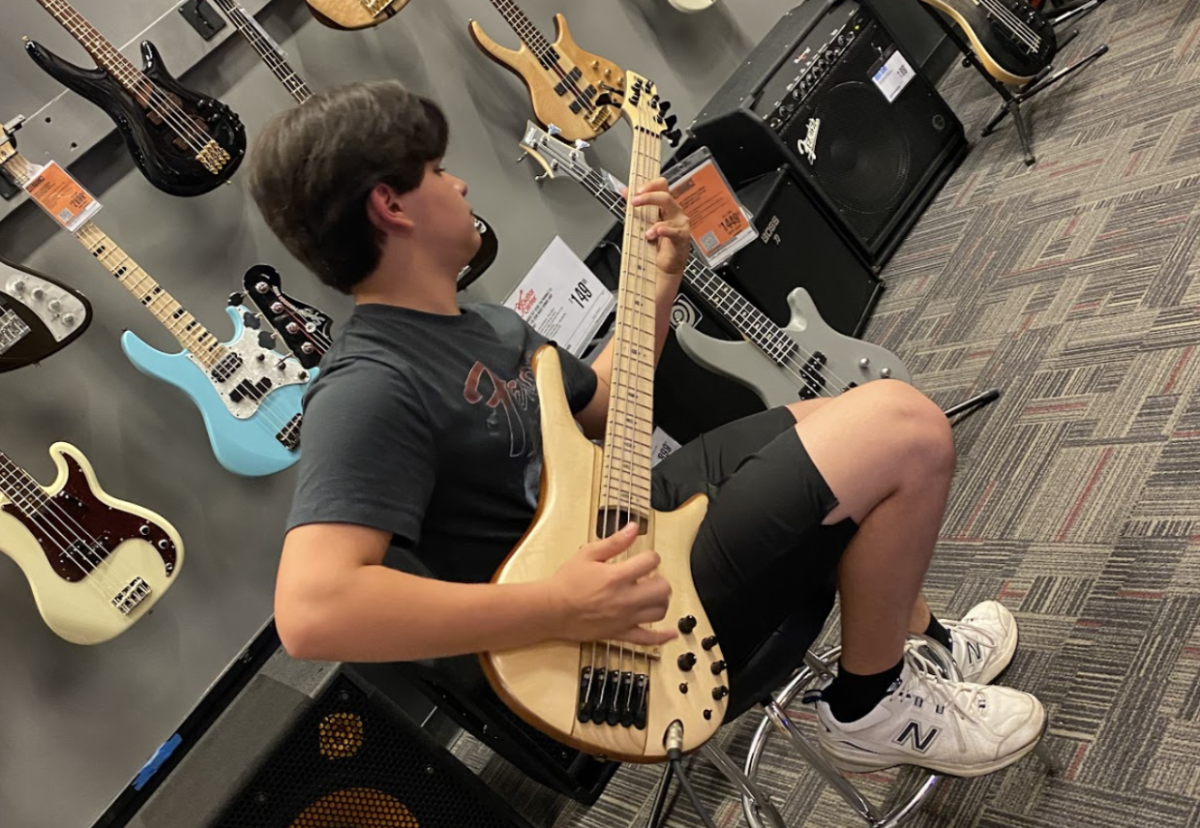

Alex • Mar 8, 2024 at 9:23 am
Fantastic article. Sports betting is going to become a major problem (it already is). Yet another reason to ban cell phones in school!
Jason • Mar 11, 2024 at 4:58 pm
Schools should not have the authority to restrict the behavior of students outside their custody and off their property. If students are gambling off-campus, the school has no jurisdiction. If they’re on campus, network filtering will catch it.
Portable telecom devices are necessary to keep in touch, to work, and to not end up stranded. Banning their presence serves no educational or safety purpose, and therefore is nonsensical at best.
Nobody respects your opinion, luddite.
Alex • Mar 15, 2024 at 1:33 pm
Jason, I agree that, except for certain unique circumstances, schools should not have the authority to restrict the behavior of students outside of school. In fact, we cover this very topic in week 1 of the law class that I have the privilege of teaching. Nothing for which I am advocating seeks to restrict student behavior outside of school, or off campus.
Having said that, the school is well within its right to restrict student speech and activities that constitute a material disruption to education. (See Tinker v. Des Moines and its progeny). Cell phone use is a clear and substantial disruption to education. Network filtering, unfortunately, does not resolve the issue because students can choose not to connect to the school network on their phone. Accordingly, I think one viable solution would be to require students to “check in” their cell phone at the beginning of the day to a student mailbox of sorts, and check out their cell phone at the end of the day (possibly for lunch, also). There are no other legitimate student needs for a cell phone during school, in my opinion.
Finally, you obviously respected this luddite’s opinion enough to respond to my initial comment, and despite our disagreement, I appreciate you doing so! Good bantering with you!!
Amani • Mar 6, 2024 at 10:35 am
You guys are killing it! Great reporting once again.